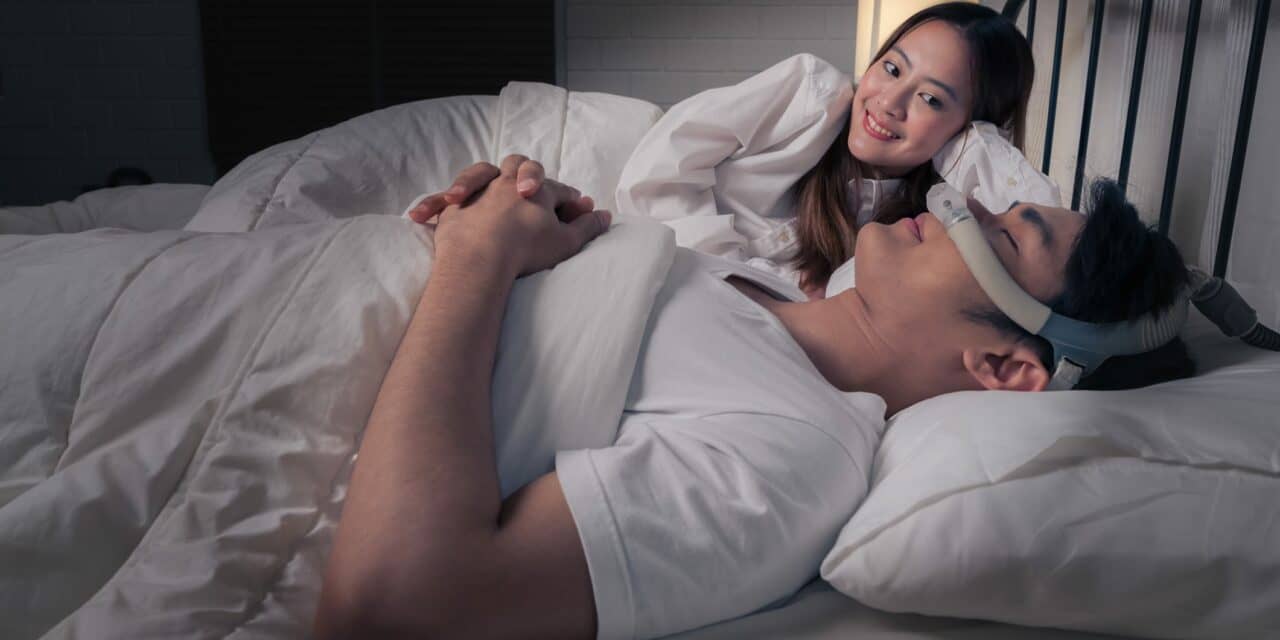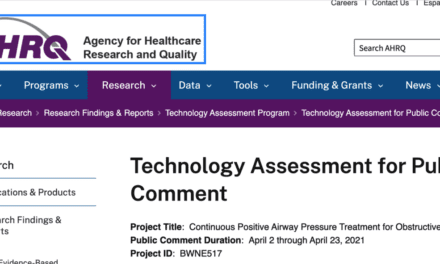Consistent use of PAP therapy by individuals with sleep apnea leads to higher relationship satisfaction and reduced conflict with their partners, research finds.
Summary: A new study demonstrates that consistent use of positive airway pressure (PAP) therapy by individuals with obstructive sleep apnea (OSA) improves relationship satisfaction and reduces conflict with their partners. The findings, to be presented at the SLEEP 2024 annual meeting, show that greater adherence to PAP therapy is associated with higher levels of relationship satisfaction and lower levels of conflict. The study involved 36 couples, with data collected over three months, revealing that better sleep efficiency also correlates with improved relationship satisfaction for both patients and their partners.
Key Takeaways:
- PAP Therapy and Relationship Quality: Higher adherence to PAP therapy in individuals with obstructive sleep apnea leads to increased relationship satisfaction and decreased relationship conflict.
- Impact of Sleep Efficiency: Improved sleep efficiency among patients is linked to higher levels of relationship satisfaction, as reported by both patients and their partners.
- Couples-Based Treatment Approach: The study supports the development of couples-based treatments, such as the “We-PAP” program, which helps couples jointly address challenges related to PAP therapy adherence.
A new study demonstrates that when individuals with obstructive sleep apnea use their positive airway pressure (PAP) machine more regularly, it benefits their relationship with their partner.
Results, to be presented at the SLEEP 2024 annual meeting, show that greater adherence to PAP therapy was associated with higher levels of relationship satisfaction and lower levels of relationship conflict. Higher sleep efficiency among patients also was associated with higher levels of relationship satisfaction as reported by both the patient and their partner.
Snoring is one of the most recognizable symptoms of sleep apnea and is often a nuisance to bed partners.
“Recognizing that sleep and sleep disorders have an impact on the quality of a relationship could be a powerful motivator for those affected with sleep apnea to adhere to treatment,” says lead author Wendy Troxel, PhD, a senior behavioral scientist with RAND and licensed clinical psychologist and adjunct professor at the University of Utah, where the study was conducted, in a release. “We developed a couples-based treatment called ‘We-PAP’ in recognition of the fact that couples’ sleep is a shared experience and to help patients and partners overcome challenges to adhering PAP together.”
Study Involves Couples and Monitors Adherence
The study involved 36 couples comprising patients initiating PAP treatment for sleep apnea and their partners. Objective PAP therapy adherence data were recorded over three months. Sleep duration and efficiency were estimated using actigraphy. Relationship satisfaction and conflict were self-reported.
Troxel notes that it is essential to consider the importance of sleep when evaluating relationship status.
“No one is at their best when they aren’t sleeping,” Troxel says in a release. “In an age where we see couples going through ‘sleep divorces,’ and roughly 50% of marriages end in actual divorce, recognizing how healthy sleep can contribute to healthy relationships is imperative.”
This study was supported by a grant from the National Institutes of Health. The research abstract was published recently in an online supplement of the journal Sleep and will be presented Wednesday, June 5, during SLEEP 2024 in Houston.
Photo 294693874 © Akesin | Dreamstime.com










